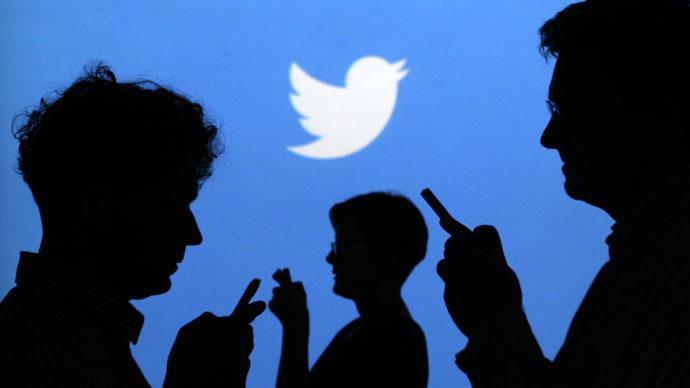Twitter comes out for #NetNeutrality

One after another, web giants are openly backing ‘net neutrality’ reforms proposed by the FCC. Twitter endorsed the plan on Monday, calling the open internet the “heart of Twitter.”
The internet not only “provides the lowest barrier to competitive entry” for businesses, but also serves “as a great equalizer in the access to information and in reaching a global audience,” Twitter public policy manager Will Carty wrote in a statement. “If you have an opinion or a new innovative web-based service, you don’t have to get permission to share it with the world at large.”
Twitter joins Google, Facebook, Netflix, Mozilla, Etsy, Reddit, and Yelp in backing the proposal of the Federal Communications Commission (FCC) to re-classify internet service providers as public utilities under the 1934 Communications Act. The measure is intended to put an end to broadband providers restricting access to websites and “throttling” services.
READ MORE:FCC chairman proposes 'strongest open internet protections ever'
This is a marked contrast from last year, when the FCC appeared willing to endorse a two-tier pricing structure for streaming online content. Providers like Comcast and Verizon had successfully compelled Netflix and other streaming services to pay in order to stream their videos over the providers' networks. Even after Netflix agreed to pay, only Comcast was said to have abided by the deal, while Verizon’s performance was described as “dramatically worse.”
Furthermore, Verizon was accused by critics of “acting in profound bad faith” in both the Netflix case and for trying to replace wired residential service with expensive but inferior wireless plans. The FCC’s rulings do not apply to wireless service.
Mobilized in part by a lengthy rant by HBO host John Oliver, who described cable companies’ tactics as “a mob shakedown,” millions of angry internet users brought down the FCC website last summer. On the symbolically chosen September 10, a large number of Internet companies joined together in an “Internet Slowdown” protest.
Meanwhile, online activist group Fight for the Future worked to connect and coordinate protests around the country and on social media. Eventually, both the FCC chairman and President Obama endorsed their message.
READ MORE:Internet Slowdown protest: Top web companies to join strike for net neutrality
The result was a new proposal by the FCC, under which all legal content and applications would have equal access to the internet, without discrimination by service providers. The new rules would apply to both wired and wireless services.
If adopted by the FCC and held up in court against the legal challenges announced by the cable companies, the measures would put an end to situations like the throttling of Netflix, or the recently rolled-out AT&T program which charges more for consumer privacy.
AT&T who claim they'd never violate #netneutrality or abuse power, offer to charge $29/mo to not blatantly spy on you http://t.co/PlGnICAwkk
— Fight for the Future (@fightfortheftr) February 18, 2015
Announcing a pilot program in Kansas City, Missouri, and seeking to compete with Google, AT&T informed subscribers it would track “the webpages you visit, the time you spend on each, the links or ads you see and follow, and the search terms you enter” – unless they opted into a privacy program, at the cost of $29 a month.
Opposition to the FCC proposal has mostly focused on attacks against President Obama, who came out in support of strong net neutrality rules. Rajit Pai, one of the two Republicans on the five-member FCC, called the plan “a massive intrusion in the Internet economy.” Senator Ted Cruz posted a YouTube video suggesting that under the Obama-endorsed proposal, internet speeds would slow to a crawl.
Fight for the Future is rejecting accusations of being pawns of the White House, though:
When we win #NetNeutrality, the victory will belong to the people. Don't believe media narrative that it was Obama. pic.twitter.com/wes6jTbDZG
— Fight for the Future (@fightfortheftr) February 18, 2015
The FCC is scheduled to vote on net neutrality on February 26.












